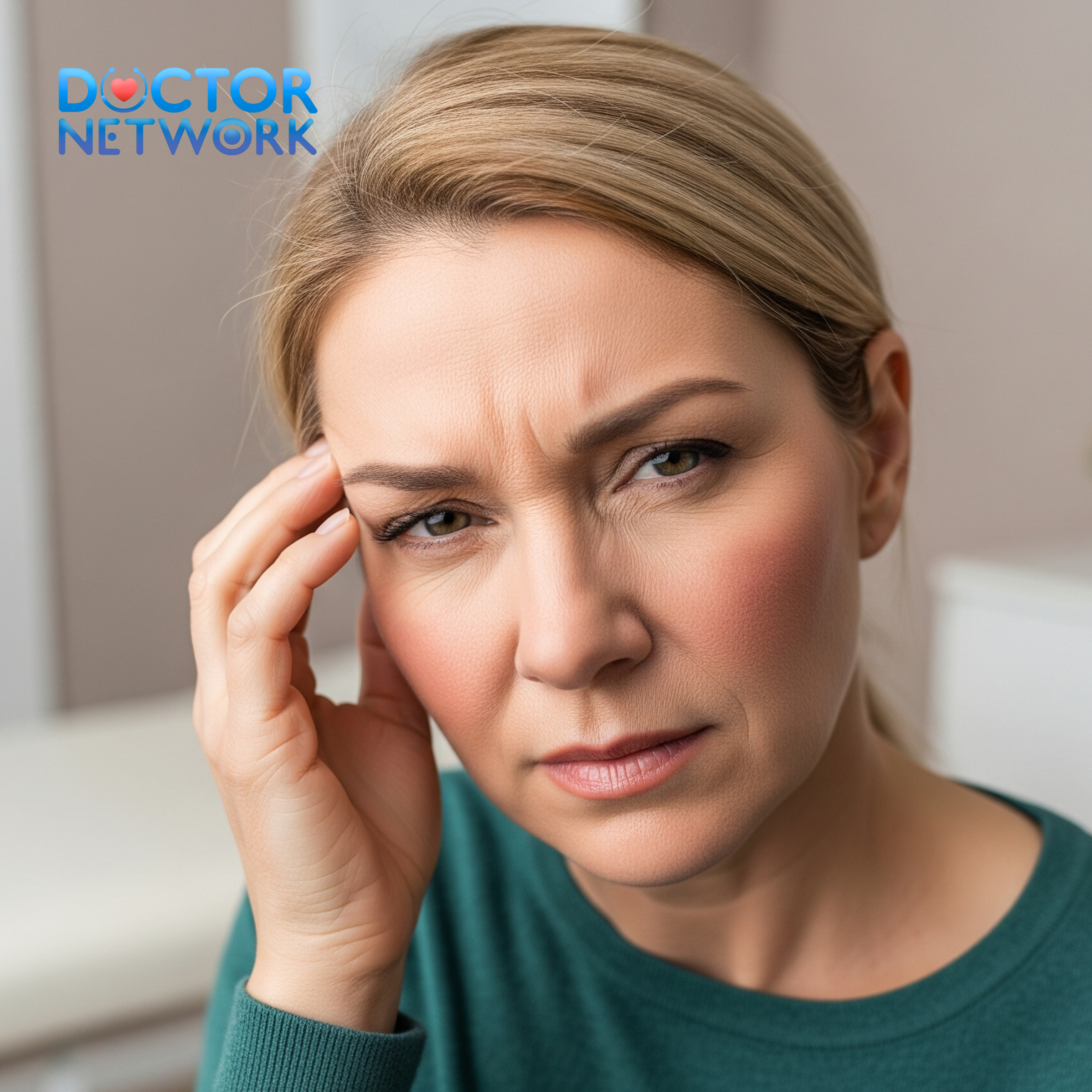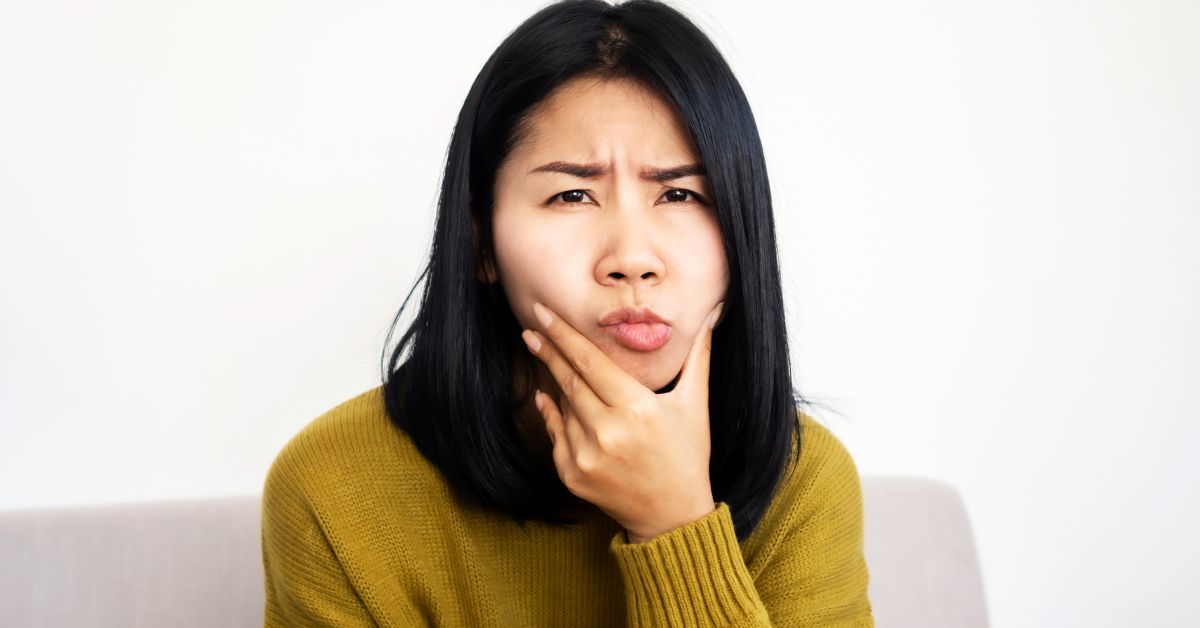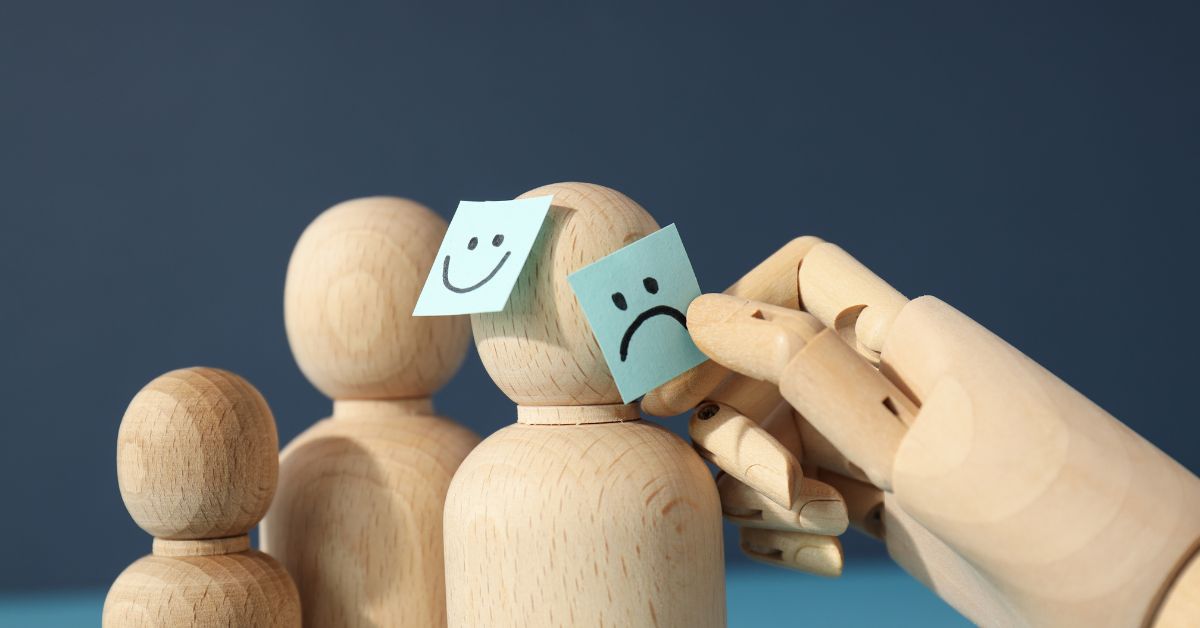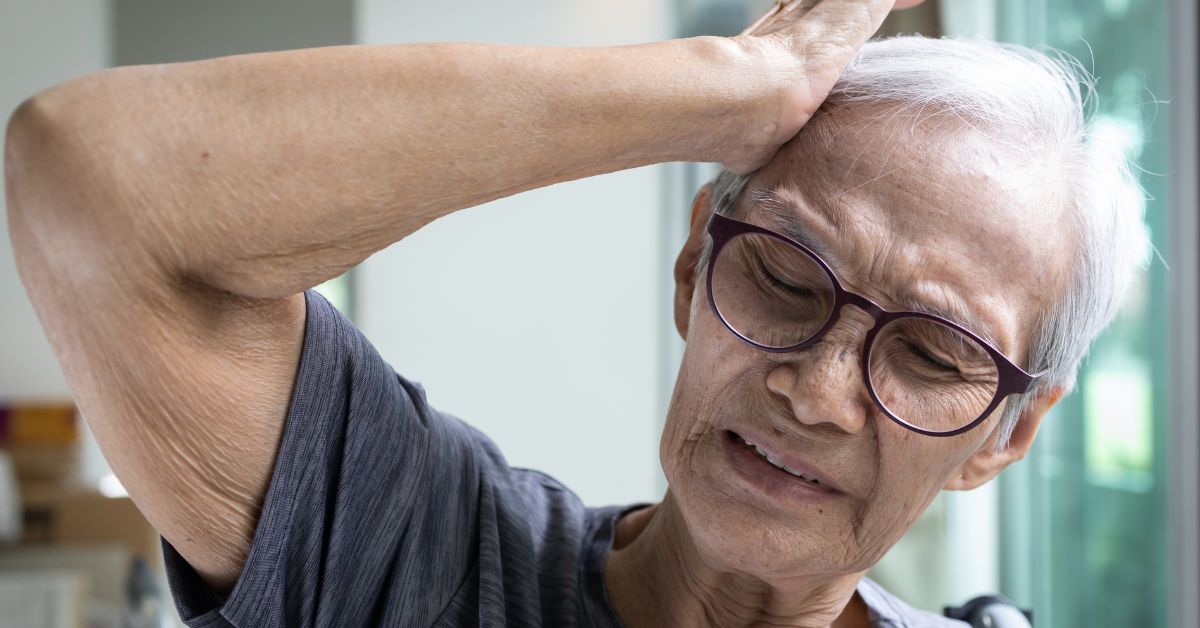Feeling dull, throbbing, or as if someone is squeezing at the back of your neck can cause extreme discomfort and significantly impact daily activities. While pain at the back of the head is often not serious, it can cause a lot of inconvenience. Let’s delve deeper into this condition, from its causes, symptoms, to treatment and prevention of Occipital Headaches.
Symptoms of Occipital Headaches
Location: Pain typically originates in the neck area, then may radiate up to the top of the head, the occipital region, both temples, or even down to the neck and shoulders.
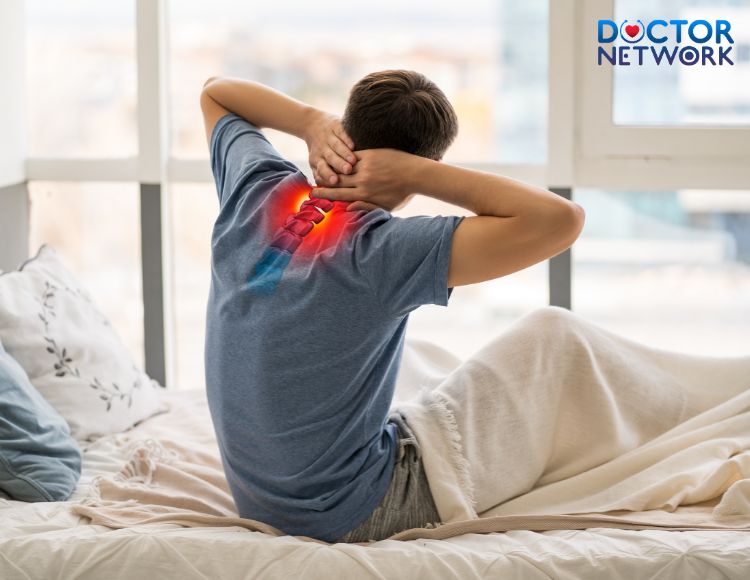
Pain at the back of the head usually originates in the neck area
Sensation of pain: Dull, prolonged ache, throbbing pain in episodes, or a feeling of tightness around the head. Accompanying symptoms: Stiff neck, difficulty in neck movement Nausea, vomiting Sensitivity to light and noise Seeing stars, dizziness
Causes of Occipital Headaches
- Muscle tension headaches: This is a common cause due to stress, tension, or incorrect posture (such as sitting incorrectly, using a high pillow when sleeping), leading to stiff neck muscles and nerve compression.
- Issues with the cervical spine: Cervical spondylosis, cervical disc herniation… can cause nerve root compression, leading to pain at the back of the head.
- Occipital neuralgia: Damage or inflammation of the occipital nerves (located at the back of the head) can cause severe, throbbing pain radiating from the neck up to the top of the head.
- Sleep deprivation, dehydration: Insufficient rest or dehydration can also lead to dull headaches, including pain at the back of the head.
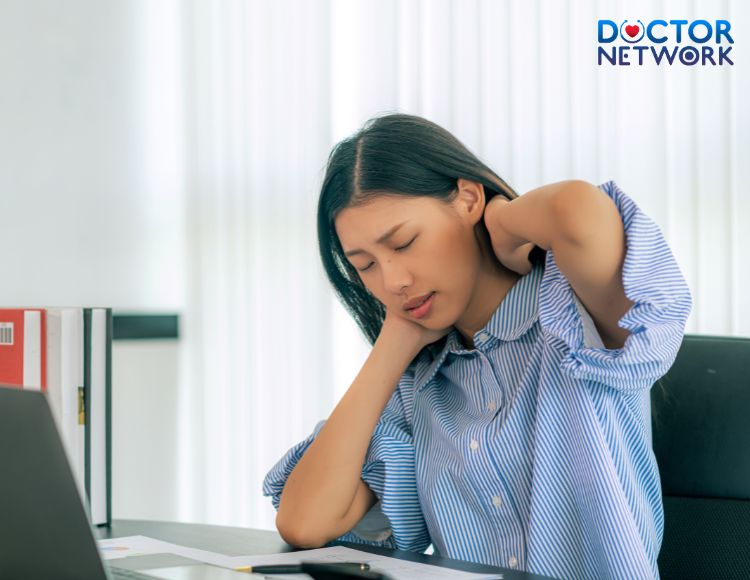
Not getting enough rest or dehydration can easily lead to dull headaches
- Other causes: High blood pressure, infections, head injuries, side effects of medications… also need to be examined to rule out serious conditions.
Diagnosis of pain at the back of the head
To accurately determine the cause, the doctor will first inquire about symptoms, medical history, and conduct a clinical examination regarding neck movement abilities, neurological reflexes… If necessary, the doctor may recommend some imaging tests to rule out serious conditions such as:
X-ray of the cervical spine Magnetic resonance imaging (MRI) Computed tomography scan (CT scan)
Treatment of pain at the back of the head
The method of treating pain at the back of the head depends on the underlying cause of the pain:
- Medications: Over-the-counter pain relievers: Paracetamol, ibuprofen,… Muscle relaxants (for pain due to muscle tension) Migraine medications (if diagnosed with migraine) Medications to treat underlying conditions (e.g., blood pressure medication)
- Non-medication methods: Physical therapy, exercises to strengthen the neck and shoulder area.
- Acupuncture, therapeutic massage to relax muscles.
- Relaxation therapy, deep breathing, yoga,… to reduce stress.
Prevention of Occipital Headaches
- Correct posture: Pay attention to posture while working, sleeping.
- Avoid prolonged sitting in one posture, limit using a very high pillow when sleeping.
- Stress management: Relaxation, apply stress reduction techniques. Adequate sleep, sufficient water intake
- Avoid excessive caffeine, alcohol consumption

Get enough sleep and drink enough water to prevent migraines at the back of your neck
When to see a doctor immediately
In addition to regular pain at the back of the head, seek medical attention immediately if you experience any of the following symptoms:
- Severe, sudden pain, unresponsive to pain relievers
- High fever, stiff neck Weakness in one side of the body, speech disturbances, blurred vision
- Changes in consciousness, confusion
Some questions related to “Occipital Headaches”
Here are some questions related to “pain at the back of the head”:
How do you differentiate pain at the back of the head from regular headaches?
Pain at the back of the head typically feels different as it originates from the neck area. The pain can be dull, lingering, or intense throbbing (especially in occipital neuralgia). Pain at the back of the head is also often accompanied by stiffness in the neck and difficulty in neck movement. Headaches (including migraines), in general, may also have additional symptoms such as nausea, vomiting, sensitivity to light, and noise.
Is pain at the back of the head always a sign of a serious condition?
In most cases, pain at the back of the head is not due to a serious medical condition. Common causes include muscle tension due to stress, incorrect posture, or sometimes migraine. However, if you experience extremely severe, sudden pain, or if it is accompanied by high fever, neck stiffness, altered consciousness, weakness in limbs… immediate medical attention is needed to rule out urgent medical conditions.
What can I do to immediately alleviate pain at the back of the head?
Rest in a quiet, cool place, avoid bright lights. Take over-the-counter pain relievers such as paracetamol, ibuprofen. Be sure to read the instructions carefully before use. Apply cold packs (ice wrapped in a cloth) or warm compresses to the neck area to soothe the pain. Practice deep breathing, relaxation techniques, and gentle massage of the neck and occipital area.
Can pain at the back of the head be permanently treated?
Treatment of pain at the back of the head focuses on reducing the frequency, intensity of headaches, and improving quality of life. Your doctor will advise a combination of medication, physical therapy, treatment of underlying causes, as well as lifestyle changes to minimize headache recurrence.
What methods can help prevent pain at the back of the head?
Improve posture while working, engage in activities, avoid prolonged forward head posture, and use a pillow of moderate height when sleeping. Engage in exercises to strengthen the neck and shoulder muscles. Stress management through relaxation, exercise, yoga, meditation… Get enough sleep and drink enough water every day.
Some scientific evidence about “Occipital Headaches”
Here are some scientific references about “Occipital Headaches”:
- According to the International Headache Society (IHS), pain at the back of the head accounts for 15-20% of all headache cases.
- Muscle tension: When neck and shoulder muscles are stiff and compress nerves, it leads to pain at the back of the head. (https://www.ncbi.nlm.nih.gov/pmc/articles/PMC5463231/)
- Relaxation therapy, yoga: Reduce stress, prevent recurrence. (https://www.mayoclinic.org/healthy-lifestyle/stress-management/in-depth/stress/art-20046037)
- Stress management: Relaxation, apply stress reduction techniques. (https://www.mayoclinic.org/healthy-lifestyle/stress-management/in-depth/stress/art-20046037)
Although causing discomfort, pain at the back of the head is rarely a sign of a serious medical condition. Through positive lifestyle changes and appropriate treatment, you can completely control and reduce the frequency of headaches. Hopefully, this article has provided you with comprehensive information about “pain at the back of the head”.
References:
https://www.healthline.com/health/pain-in-back-of-head
https://www.webmd.com/migraines-headaches/cervicogenic-headache-facts_
https://www.hawaiipain.com/blog/the-link-between-neck-pain-and-migraines
Kiểm Duyệt Nội Dung
More than 10 years of marketing communications experience in the medical and health field.
Successfully deployed marketing communication activities, content development and social networking channels for hospital partners, clinics, doctors and medical professionals across the country.
More than 6 years of experience in organizing and producing leading prestigious medical programs in Vietnam, in collaboration with Ho Chi Minh City Television (HTV). Typical programs include Nhật Ký Blouse Trắng, Bác Sĩ Nói Gì, Alo Bác Sĩ Nghe, Nhật Ký Hạnh Phúc, Vui Khỏe Cùng Con, Bác Sỹ Mẹ, v.v.
Comprehensive cooperation with hundreds of hospitals and clinics, thousands of doctors and medical experts to join hands in building a medical content and service platform on the Doctor Network application.















